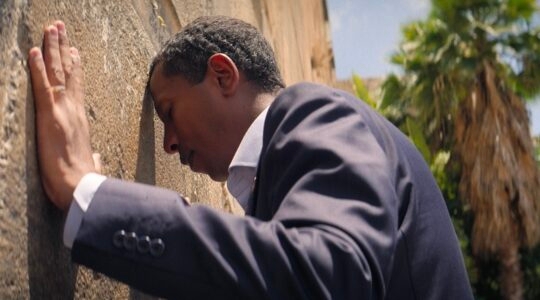Two New York Post columnists, Amir Taheri and Benny Avni, are criticizing President Obama’s decision to take up Iran’s recent offer of new talks.
If the proposed round — the first since last fall — occurs, Ahmadinejad could claim a diplomatic victory, for three reasons…. 1) For the first time since the nuclear dispute started a decade ago, the agenda would be set by the Islamic Republic — not the big powers. … 2) Ahmadinejad has managed to engage the major powers on a range of issues — creating the impression that they acknowledge Iran as a partner in "a new global order." … 3) Even if Ahmadinejad fails to secure a place at the top table through the 5+1 group, the talks could provide a mechanism for buying time. Weeks if not months could go to "clarify" aspects of the proposed "package." Counterproposals could fly in both directions, consuming yet more time. With those delays, Obama will have given Ahmadinejad at least a year free of pressure and more sanctions….
There are two reasons for Tehran’s self-assurance as it prepares for October talks. First, Ahmadinejad and his advisers are confident that the Obama administration has accepted a nuclear Iran, but dare not say so publicly for fear of the "Zionist lobby" in Washington…. Second, Ahmadinejad thinks that Obama is anxious to organize a US strategic retreat from the Middle East. With help from Iran, he could obtain an orderly retreat. With a hostile Iran, it could turn into a "historic catastrophe" for America.
Avni also complains about the decision to launch the talks, and goes on to assert that Israel is becoming increasingly nervous:
Meanwhile, Israelis worry that, in his rush to "engage" Iran diplomatically, Obama has already compromised another Security Council achievement. In the past, the council ordered Iran to suspend all its uranium-enrichment activity. Now the administration is signaling a willingness to drop that demand, complains former Israeli national-security adviser Giora Eiland.
Instead, says Eiland, Team O plans to set up unspecified assurances that Iran’s enrichment would remain at the low levels required for a nonmilitary nuclear power, in hopes of preventing it from reaching the levels needed for the bomb.
Theoretically, Eiland says, it’s possible to establish conditions that would prevent Iran from obtaining weapons even if it enriches its own uranium. But for that to work, America must be tough in the negotiation process, insisting that those conditions would be accepted and enforced; Iran would resist.
"I don’t believe the US will be forceful enough," Eiland told me. "Obama isn’t willing to risk a real crisis" that may lead to a breakdown in talks with Iran.

Help ensure Jewish news remains accessible to all. Your donation to the Jewish Telegraphic Agency powers the trusted journalism that has connected Jewish communities worldwide for more than 100 years. With your help, JTA can continue to deliver vital news and insights. Donate today.





